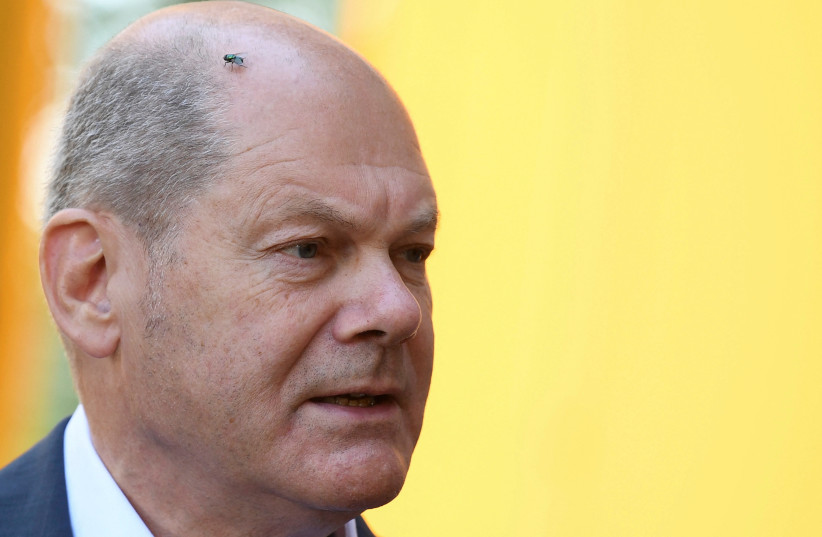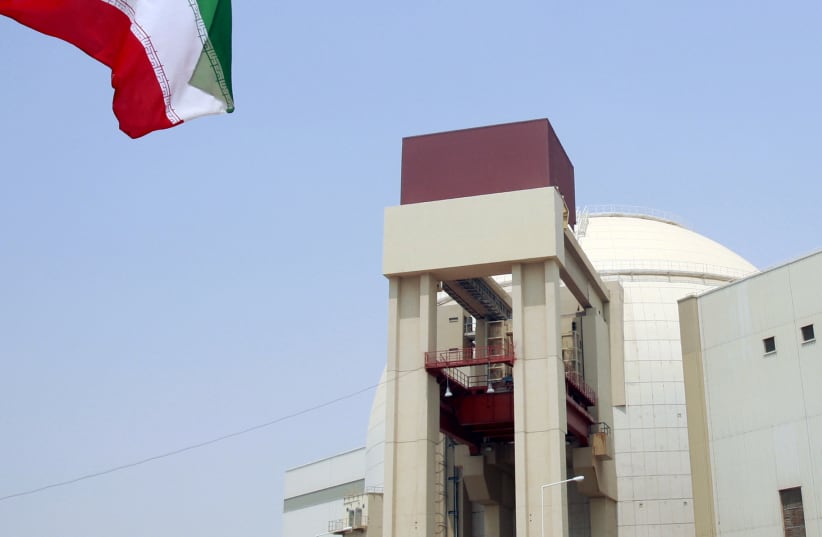Israel on Monday urged France and the United States not to cave to Iranian terms for the revival of the 2015 nuclear deal, as the European Union waited for Washington’s response to Tehran’s demands to clinch the agreement.
“Iran cannot be allowed to endlessly buy time and receive more concessions while it advances its nuclear program and spreads terror worldwide,” Prime Minster Yair Lapid said in phone conversation with French President Emmanuel Macron.
"Iran cannot be allowed to endlessly buy time and receive more concessions while it advances its nuclear program and spreads terror worldwide."
Prime Minister Yair Lapid
Israel would not be obligated by such an agreement, he said, adding, “Israel will continue to do everything to prevent Iran from attaining a nuclear capability.”
Lapid urged Macron to clarify to the Iranians that further concessions would not be possible.


What are Israel's concerns with Iran?
Lapid also warned that the offer to the Iranians has elements that differ from the original JCPOA and that “pave the way for significant investment to flow into Iran’s terrorist network and to strengthening the Iranian military,” the Prime Minister’s Office said.
The conversation came one day after Biden spoke with Macron, British Prime Minister Boris Johnson and German Chancellor Olaf Scholz about the Iran deal. Lapid also spoke with Scholz about the deal last week.
Defense Minister Benny Gantz told Radio 103 FM he was “very worried” the deal would be revived, particularly since it does not do enough to prevent Iran from enriching uranium and that it allows for resources to enter Iran that will help it strengthen its military might.
The JCPOA has been dormant since the former Trump administration left the deal in 2018. US President Joe Biden has sought to revive the deal with the help of the EU, which has held indirect talks between Washington and Tehran.
Israel is braced for the EU’s efforts to be successful, Gantz said, adding that it is preparing its “capability for self-defense and [military] action in case we need it.”
The deal’s revival would increase the likelihood of a military engagement between Israel and Iran, he said.
“Israel will have to hold a discussion on how we live with the deal,” Gantz said, adding that Israel knows how to defend itself by itself.”
Iran and the nuclear deal revival talks
Israel was also strengthening its regional alliances, he said.
After 16 months of fitful, indirect US-Iranian talks, with EU officials shuttling between the sides, a senior EU official on August 8 said it had laid down a “final” offer and expected a response within a “very, very few weeks.”
Iran last week responded to the EU’s text with “additional views and considerations,” while calling on Washington to show flexibility to resolve three remaining issues. The US last week said it was studying Iran’s response.
The EU’s foreign policy chief, Josep Borrell, on Monday said he hoped the US would respond positively as early as this week to the bloc’s proposal. Tehran had given a “reasonable” response to it, he said.
Iranian Foreign Ministry spokesman Nasser Kanaani said Tehran wanted a sustainable deal that would preserve Tehran’s legitimate rights. He accused the US of foot-dragging.
“The Americans are procrastinating, and there is inaction from the European sides... America and Europe need an agreement more than Iran,” Kanaani told a news conference. “Until we agree on all issues, we cannot say that we have reached a complete agreement.”
One issue that has complicated matters is the possibility of a prisoner exchange. The US has repeatedly called on Tehran to release several Iranian-Americans held in Iran on security charges. Iran has demanded that several Iranians detained on charges linked to US sanctions be freed.
“We emphasize that the exchange of prisoners with Washington is a separate issue, and it has nothing to do with the process of negotiations to revive the 2015 pact,” Kanaani said, adding that Tehran was ready to swap prisoners.
“We seek a good agreement which would guarantee Iran’s national interests and would be long-lasting... we won’t be bitten twice,” he said.
Reuters contributed to this report.
